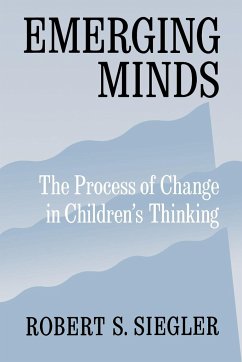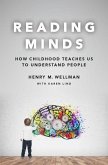How do children acquire the vast array of concepts, strategies, and skills that distinguish the thinking of infants and toddlers from that of pre-schoolers, older children and adolescents? In this text, Robert Siegler addresses these and other fundamental questions about children's thinking. Previous theories have tended to depict cognitive development much like a staircase. At an early age, children think in one way; as they get older, they step up to increasingly higher ways of thinking. Siegler proposes that viewing the development within an evolutionary framework is more useful than a staircase model. The evolution of species depends on mechanisms for generating variability, for choosing adaptively among the variants, and for preserving the lessons of past experience so that successful variants become increasingly prevalent. The development of children's thinking appears to depend on mechanisms to fulfill these same functions. Siegler's theory is consistent with a great deal of evidence. It unifies phenomena from such areas as problem solving, reasoning, and memory, and reveals commonalities in the thinking of people of all ages.
This book includes a critique of traditional ways of viewing cognitive-developmental change, a proposed alternative framework, and illustrations of the benefits that the alternative framework can bring.
Hinweis: Dieser Artikel kann nur an eine deutsche Lieferadresse ausgeliefert werden.
This book includes a critique of traditional ways of viewing cognitive-developmental change, a proposed alternative framework, and illustrations of the benefits that the alternative framework can bring.
Hinweis: Dieser Artikel kann nur an eine deutsche Lieferadresse ausgeliefert werden.








